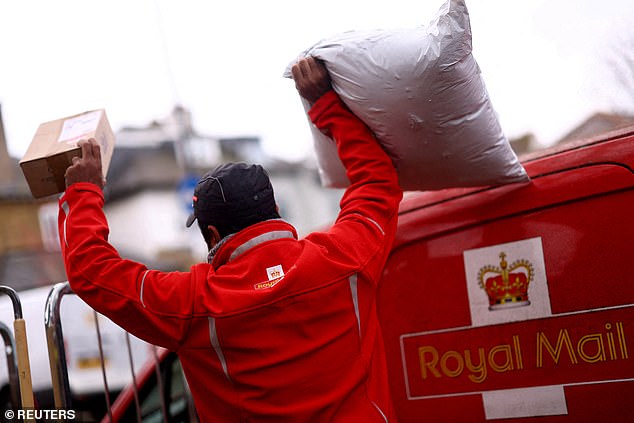Royal Mail failed to deliver one in four first-class letters on time in the months after it was taken over by the Czech billionaire Daniel Kretinsky, it has been reported.
The postal service, which is already under scrutiny after it increased the cost of a first-class stamp to £1.70 in April, is failing to meet the targets imposed by the watchdog.
Ofcom requires the Royal Mail to deliver 90 per cent of first-class post the next working day and 98.5 per cent of second-class post within three working days.
However, new figures reveal that just 75.9 per cent of first-class letters and 89.3 per cent of second-class post were delivered on time between the end of March and June.
The stats are the first to be released since the postal service – which traces its lineage back to Henry VIII – fell under foreign ownership for the first time.
Mr Kretinsky’s £3.6million takeover of the Royal Mail was completed earlier this year following a national security assessment – but sparked backlash from across Westminster.
Jamie Stephenson, Royal Mail’s interim chief operating officer, said according to The Telegraph: ‘Timely letter deliveries really matter to our customers, and they matter to us too.
‘We are taking targeted steps to improve reliability, and we remain focused on delivering a better service for all our customers every day.’

Ofcom requires the Royal Mail to deliver 90 per cent of first-class post the next working day and 98.5 per cent of second-class post within three working days (file photo)

The firm has just been taken over by Czech billionaire Daniel Kretinsky (pictured) via his EP Group for £3.6billion
The postal service has promised to recruit more frontline staff to make the network ‘more reliable and resilient’.
Royal Mail’s current shortfalls come after it was announced that from April next year, Ofcom will lower the target for first-class mail to arrive the next working day from 93 to 90 per cent of deliveries.
The target for second-class mail to arrive within three days would be cut from 98.5 to 95 per cent.
Amanda Fergusson, of the Greeting Cards Association, previously said customers ‘expect more for less from Royal Mail, not even less for significantly more’.
A Government spokesman said: ‘The public expects a well-run postal service, with letters arriving on time across the country without it costing the Earth.
‘We now need Royal Mail to work with unions and posties to deliver a service that people expect, and this includes maintaining the principle of one price to send a letter anywhere in the UK.’
Royal Mail is facing an identity crisis as the number of letters being delivered continues to fall every year amid rising costs – with people now using digital means of communication to send urgent messages.
Twenty years ago, it said it was delivering 20 billion letters a year – equivalent to roughly two letters a day for every address in the UK, six days a week, all year round.
That has now fallen to around 6.6billion as of 2023/24, or around four letters a week per address.
The universal service obligation (USO) currently requires Royal Mail to deliver letters six days a week and parcels five days a week.
However, this is under review as Royal Mail has argued that the USO is no longer fit for purpose. It wants to cut Second Class deliveries to three times a week, delivered Monday, Wednesdays and Fridays.
It is attempting to refocus on parcel delivery – but faces stiff competition in the hyper-competitive parcel delivery market from competitors like Evri, Yodel and DPD.
Royal Mail has offered some conciliations as part of its proposal to Ofcom, including adding tracking to all parcels delivered First and Second Class as standard.
Labour ministers approved the sale of International Distribution Services (IDS) – the Royal Mail’s parent company – to Daniel Kretinsky’s EP Group for £3.6billion last year, taking Britain’s postal service into foreign ownership for the first time.
Kretinsky had amassed a 28 per cent stake in IDS over several years – and his takeover prompted a Government review due to the postal service’s vital role in UK national infrastructure.
Through his companies, he also owns more than a quarter of West Ham United FC, 10 per cent of Sainsbury’s and a gas transmission service that pipes Russian gas to Europe – a contentious link that nevertheless did not deter UK ministers.
Upon approval of the sale by shareholders last month, he said he would put ’employees and customers at the heart of everything IDS does’.
The Daily Mail has contacted Royal Mail for comment.












